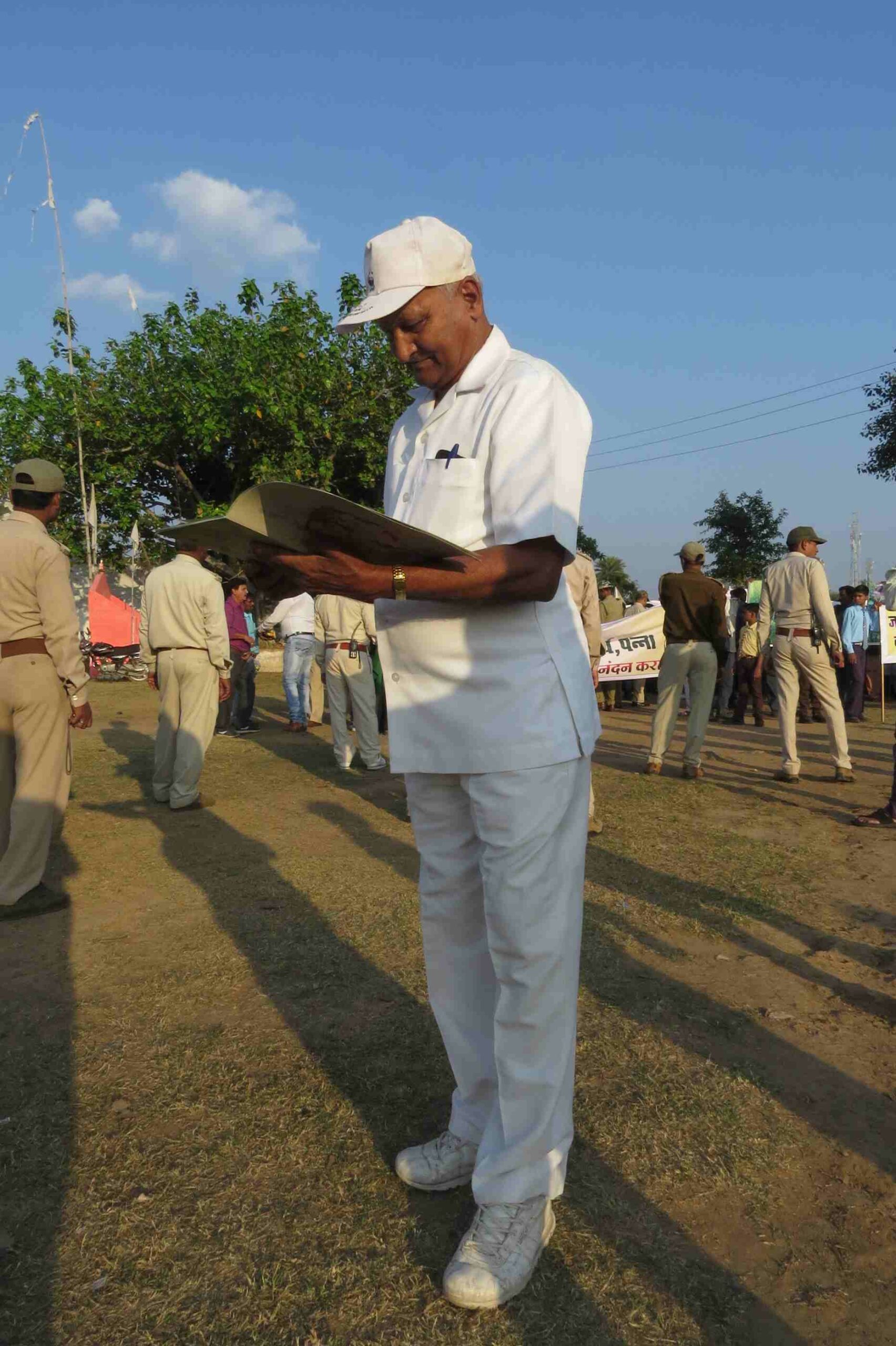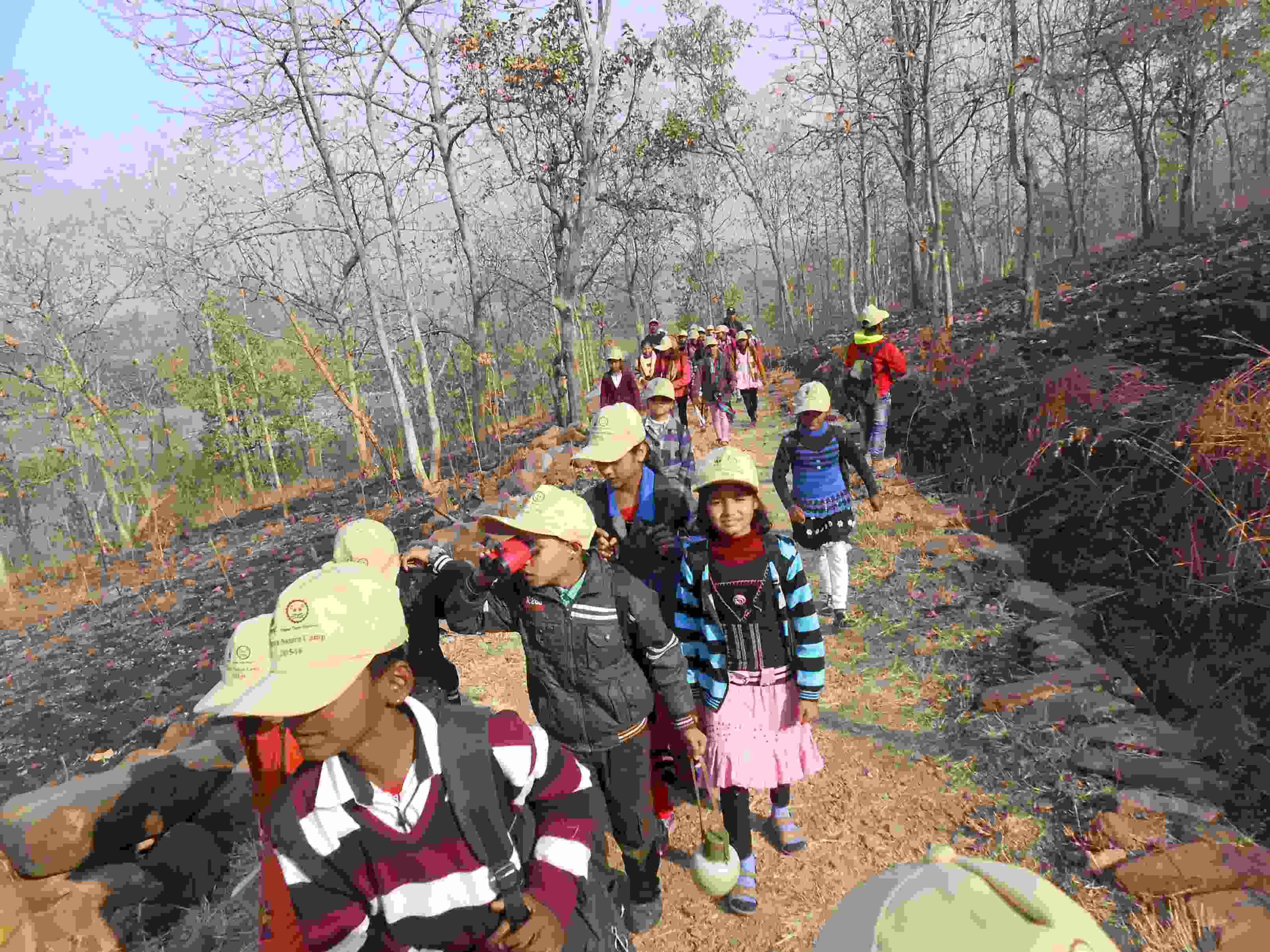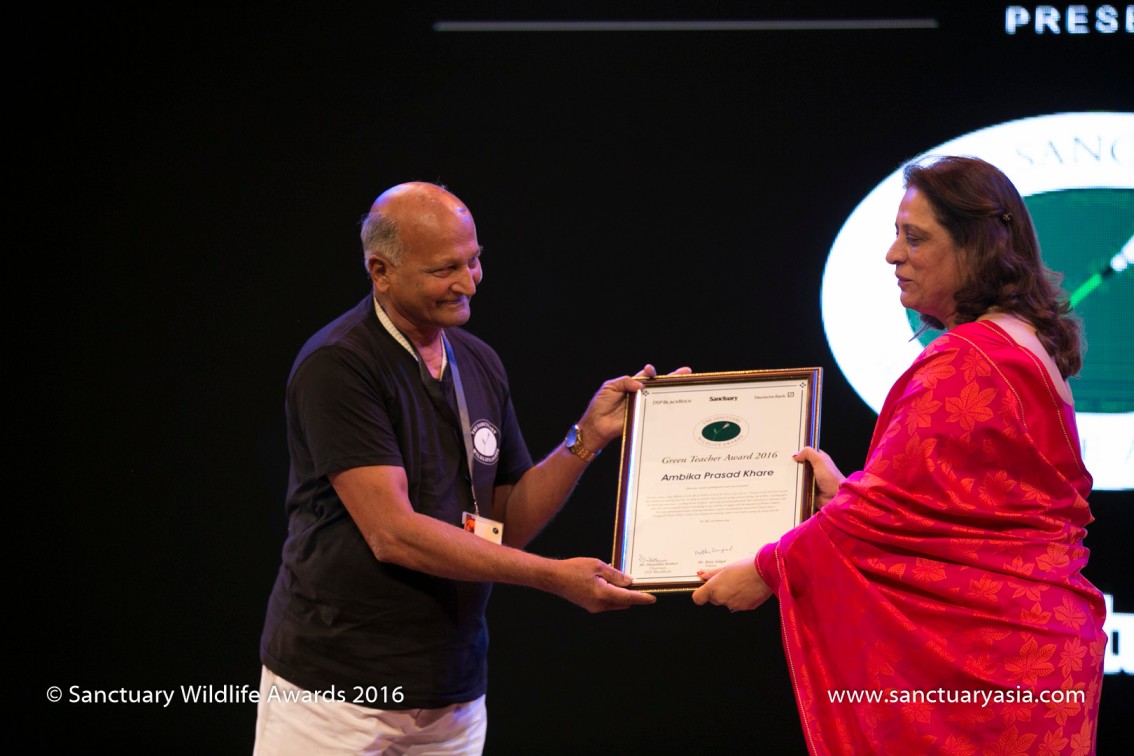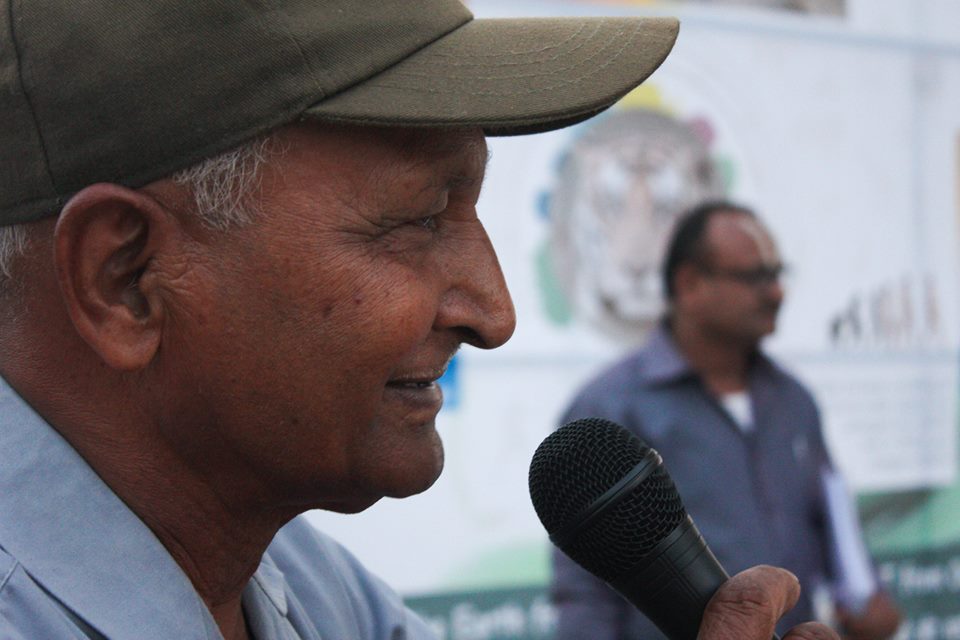Ambika Khare, born in Panna on 26 December 1932, passed away at the age of 88 on the night of 16 April 2021 of heart failure. A man ahead of his time, a great supporter of Panna Tiger Reserve, winner of Sanctuary Asia’s Green Teacher Award for his seminal role in running Panna Nature Camps, lifelong teacher, educationist, mentor — he was larger than life. The kind of person you felt would live on forever.

In 2009, it was officially accepted by the Forest Department that Panna Tiger Reserve, a prime tiger sanctuary located in the Vindhya mountain range in Madhya Pradesh, had lost all but one of its tigers. Led by the then Park Director, Shri Rangaiah Sreenivasa Murthy (IFS) the Panna revival plan was launched. Two female tigers, followed by a male tiger were introduced from other Tiger Reserves of Madhya Pradesh. On 16 April 2010, the first litter of four tiger cubs was discovered, marking Panna’s remarkable turn around. This date has since been celebrated as Panna’s unique ‘Tiger Birthday’. Even this year, there were elaborate plans of the citizens of Panna to celebrate the 11th birthday, but the worsening COVID-19 situation put all plans on hold.
Outpouring of heartfelt condolences
Mr Rangaiah Sreenivasa Murthy, IFS (retd) ex-Director Panna Tiger Reserve and the architect of Panna’s revival, posted, “Really sad news. My association with Sir is 12 year long, he was a gem of a person. His contribution towards making the unique ‘Panna Nature Camps’ an effective tool of joining people with the park, will be remembered in the times to come.”
Arun Singh, a senior and feted journalist from Panna, told me over the phone, “Even at this age, close to 90 years, he had a zest for life. He would go out for walks in the forests close to Panna, he would teach for up to 3 hours daily. Being largely isolated at home due to the pandemic may not have gone down well with his zest.”

As part of Panna’s revival, apart from implementing the tiger reintroduction programme and increasing anti-poaching measures, there was a dire need to spread awareness and start a dialogue with the local community. The Park Director, Rangaiah Sreenivasa Murthy, conceptualised the idea of the Panna Nature Camps.
In 2009, a week-long camp for selection and training of resource persons was conducted with the oldest participants there being then 80-year-old Ambika Khare and then 70-year-old Devidutta Chaturvedi. Both were retired school teachers who performed the best and were selected. From 2009 onwards, every year the camps were held every Sunday for the winter months of November to February, with 30 participants for each camp and about 500 participants largely comprising children covered every year. The two had an old connection of teacher and student – Devidutta sir was a student of Ambika sir. Their relationship dated back to the 1950s and they continued to work as a team all their life. They said, “Humko na daam chahiye na naam, hum chahte hain karna keval kaam [Don’t want money nor fame, we just want to work]”.
Ambika sir, as he was fondly called, taught mathematics, science and English, and almost everybody in Panna was his student. An educationist to the core, he set up a school following the philosophy of Aurobindo, which, even today is run within his extended house premises in Panna town.
This work did not go unrecognised. Ambika Khare and Devidutta Chaturvedi received the prestigious Sanctuary Asia 2016 Earth Heroes ‘Green Teacher’ Award. This national recognition was a highly cherished one for both. Being well aware of their advancing years, they trained Manish Rawat and Bhavani Patel, school teachers from Panna, to carry on their noble work.

I met Ambika Khare for the first time around 2014 when I was working on a children’s book about Panna Tiger Reserve with Mr Murthy. We built our narrative through the eyes of Khare Sir and Chaturvedi Sir, and through a teenage girl who has participated in the Panna nature camp. It was just impossible to imagine Panna and its children without the duo.
In the last four to five years, while a back problem kept Chaturvedi Sir restricted largely to his home, Ambika Khare, despite his advancing age, continued to participate in outdoor activities and camps. His enthusiasm was infectious and his love and curiosity for nature unending as he continued to engage with the education of Panna’s children.
This inspiring man and his student nurtured generations of young naturalists. They are the foundation upon which Panna thrives.
I remember there was a programme in Panna during the launch of the Panna Nature Camps in 2019, where earlier attendees were present in large numbers. While they were asked to stand up and share their experiences, a saree-clad shy woman stood up and said that she fondly remembered the first nature camp that she was a part of. Today, she is a school teacher in Panna, and is taking forth what she had learnt in the camp.

I last met Ambika Khare in the last week of December 2019 when I spent a day in Panna meeting up old friends. He was as always dressed in his dapper safari suit, with smart white shoes, a welcoming smile, exuding an openness, curiosity and gentleness. There are innumerable lessons that one can take from a man of this stature. But the one that remains with me is his unique contribution to Panna’s revival for over a decade starting at the young age of 80! Through his students, his family, the institutions he created his life’s work, which will continue to live on and thrive.
Two cubs of the first litter survived to adulthood, and as per the 2018 national tiger survey, Panna had 31 tigers. But the future of Panna is at stake due to the Ken-Betwa River Linking project.
However, while the whole of Panna and Panna lovers across the country were gearing up to celebrate Panna’s unique Tiger Birthday on April 16, it is poignant that Ambika Sir passed away on this very day. Knowing him, I am sure his message would have been to do everything to save Panna and Ken.
(Written by Peeyush Sekhsaria, amateur naturalist, co-author ‘Our Tiger’s Return – The Story of Panna Tiger Reserve’;
Edited by Yoshita Rao)
No comments:
Post a Comment